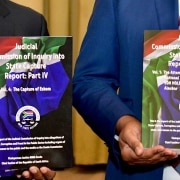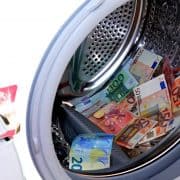|
Getting your Trinity Audio player ready...
|
Man does not live by bread alone, it says in the Bible, and that is certainly true for some politicians accused of corruption. They also live by pasta, meatballs, rice balls, jam, tea and wine, among other comestibles. Food and drink as code words for bribes are hard-wired into the language of many cultures, and several criminal cases of late offer a spicy taste.
A federal corruption trial is underway in New York for Joseph Percoco, a close ally and family friend of Gov. Andrew Cuomo. Among the allegations is that Mr. Percoco, with all the eloquence of Tony Soprano and his associates, referred to bribe money as boxes of “ziti.”
In Pennsylvania, the mayor of Allentown, Ed Pawlowski, is fending off bribery, fraud and conspiracy charges. His federal case turns in part on whether recorded conversations about picking up “meatballs” meant collecting payoffs or actually getting ready to eat. Then there’s the approaching trial of a Maryland state senator, Nathaniel Oaks, who federal prosecutors say used “lollipops” as code for illicit cash in $1 000 bundles.
Sounds almost like a meal with a few basic food groups: carbohydrates, protein, fats. It’s the sort of menu that Harendra Singh might have considered for the restaurant he operated on city property in Long Island City, Queens.
Recently unsealed court papers show that Mr. Singh secretly pleaded guilty to bribery and told federal authorities that he had made campaign contributions to Mayor Bill de Blasio — referred to in the documents as “Official #2” — to buy favourable lease terms for himself. Mr. de Blasio has denied any wrongdoing, and, indeed, no charges have been brought against him.
Still, at the start of his second term, the mayor seems unable to shake fully free of questions about his ethical compass. In effect, the authorities said Mr. Singh was guilty of handing a bribe to a political leader who was not charged with accepting it. Voters may be forgiven if they are a bit confused and, perhaps, puzzled over this immaculate reception.
For some, corruption is as necessary as eating
Around the world, some politicians require graft for sustenance; gustatory metaphors and euphemisms are not uniquely American.
In France, a bribe is a “pot of wine.” It’s “something for a soft drink” in Portugal, “a cup of coffee” in Syria, “tea money” in China. Corrupt payments in Germany are described as “saftig,” or juicy. Italians have “pizzo” for extortion, derived not from pizza but from a Sicilian expression for “letting someone wet his beak.”
In Japan, onigiri, a rice ball, may refer to bribe money stuffed inside that dish. A wad of cash in Russia is a “cutlet.” Payoffs in Colombia may be described as “mermelada,” Spanish for jam. “Mordida,” meaning bite, is Mexico’s food-related term. In parts of the Arab world, it is said of a group new to power that “it’s their turn to eat now.” And in Israel, words like “champagne” and “meal ordering” are being used in a corruption scandal involving Prime Minister Benjamin Netanyahu and his wife, Sara.
Hang on, that’s not quite right. For a change, this isn’t food as metaphor. It’s the real thing. The Netanyahus are the targets of investigations into whether she wrongly sneaked in catered meals at taxpayer expense and whether he illegally accepted gifts of champagne and expensive cigars.
Beats ziti and meatballs, some would say.








